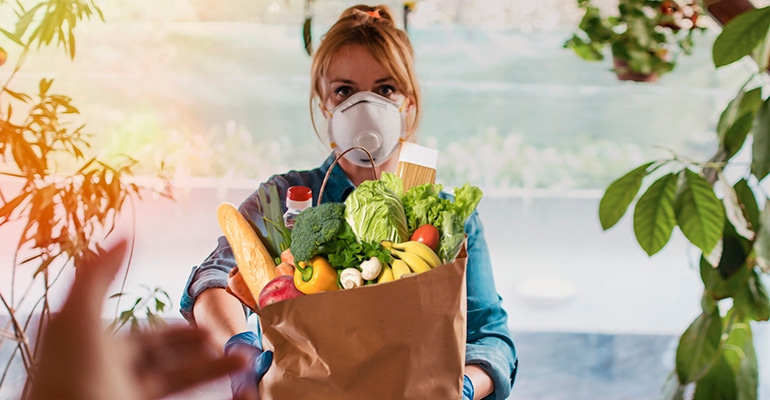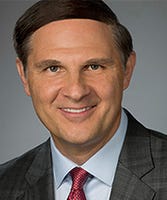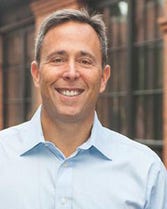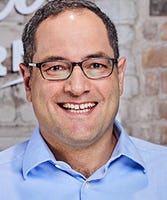4 CEOs foretell the future of food
Plant-based proteins, alternative sweeteners and transparent supply chains will continue to evolve, but great taste will reign for consumers.

The COVID-19 pandemic accelerated numerous changes to the food industry in 2020, and seemingly everyone is scrambling to discover what’s next.
James Za
“It will continuously come back to whether the product tastes good and whether it appears appetizing. So, if the product is appetizing, the product is flavorful and tastes good, that will carry the day,” Zallie said during a panel discussion at the BMO 2020 Growth & ESG Investor Conference on Dec. 9.
Moderated by BMO analysts Kelly Bania, who focuses on food retailers, and Ken Zaslow, whose specialty is food and agribusiness, four executives discussed what will and won’t change in the food industry in the next five years.
The other participants—Nick Green, co-founder and CEO of Thrive Market; Steve Spinner, CEO of United Natural Foods Inc.; and Russell Diez-Canseco, president and CEO of Vital Farms—seemed to agree that today’s biggest trends aren’t going away.
“The fut
Green agreed that consumers will be paying more attention to ingredients than to fads.
“It’s going to be less about what is the trend of the day and more about people using more information than they’ve ever had before about what is right for their bodies, and their health and their families to shop their values and shop personalized,” he said.
Consumers also will continue to care about environmental sustainability.
“If I wanted to get really specific, the new wave on that is going to be regenerative [agriculture]. Consumers are saying it’s not enough to just be organic; it’s not enough to not be doing damage to the environment; we actually want to see companies or brands and products that are not carbon positive, that are sequestering carbon, that are net positive for the climate,” Green continued.
In addition to having a transparent supply chain, consumers want a resilient supply chain that is fair to all the stakeholders, Diez-Canseco said.
“We’ve accelerated a trend toward improving resilience in the supply chain; that gets to things like sustainability; that gets to things like people who work in the food supply chain; it gets to the idea that helping small family farmers be successful over the long haul is going to be critical to having a resilient food supply for the future,” he said.
Educating consumers

Vital Farms eggs and dairy products come from chickens and cows that are raised on pasture.
“In the early days, we used to ask ourselves if we were an egg company or an education company because in the early days, we were the very first producer at scale and marketer at scale of this new, potentially commodity item called pasture-raised eggs,” Diez-Canseco said.
Consumers didn’t know the difference between “cage-free” and “pasture-raised;” some even believed the two terms were equivalent. The simple-to-remember difference is that pasture-raised eggs come from chickens that primarily live outside instead of in a barn or cage, he said.
Better-for-you foods

When asked what his pie-in-the-sky food dream is, the Ingredion executive whipped up a tasty one. “We could potentially see a guilt-free ice cream that would be sugar free, animal protein free, plain label, low cal and indulgent.”
With the advances in plant-based foods in the past five years, Zallie said, “that’s not an impossibility, that’s a possibility.”
Zallie even expects governments to begin enforcing some health-based standards, which will result in enhanced product quality, he said.
Ingredion is heavily invested in stevia; different types of the plant-based sweetener pair best with different foods, he said. But to satisfy consumers, Ingredion has worked to improve the mouth feel of stevia, as well.
Will brands be able to keep up with consumers’ changing demands? Green said it’s a difficult task.
“It’s a tough time, in some ways, to be a brand,” Green said. “There’s a huge opportunity for innovation; there’s lower barriers for entry than there ever has been. But that pace of change also means that what consumers want is constantly changing.”
About the Author(s)
You May Also Like




